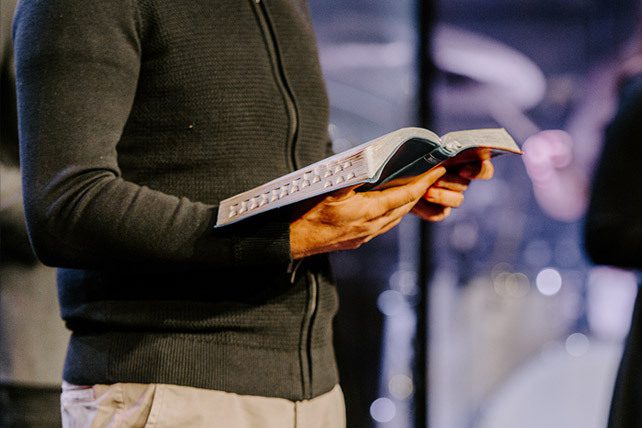Some commentaries place a greater emphasis on some things than others, but they generally seek to give readers a thorough accounting of a biblical book’s historical and cultural context, as well as its place within the overall narrative of Scripture. They also provide grammatical insights and a range of reasonable interpretations. Some commentaries even provide detailed excursuses into key points of historical or theological significance.
All of this is fascinating, especially for a pastor who is passionate about learning everything he can about a biblical book or Scripture passage. But much of it can (and should) be left on the cutting room floor.
The job of a preacher is not to tell the congregation everything there is to know about a particular Bible passage. His job is to convey its central message and how it can be applied to their lives.
The goal in preaching is not information transfer but transformed lives. A bloated sermon may result in congregants going home with pages of notes stuffed in their Bibles, full of alliterations and historical factoids. But once those notes go on a shelf, in a binder, or in the zipper compartment of a Bible case, they tend to stay there, never to be looked at or thought deeply about again.
If the central moral and spiritual imperatives of the text have not deeply permeated the hearts of listeners, it is far less likely that a sermon will result in much change in their lives.
In other words, simple sermons—which are not the same as simplistic sermons—are more effective sermons.
To get to a point of simplicity is hard, because it requires a preacher not only to study deeply, but prayerfully seek to distill the fundamental truth of a passage into something memorable and actionable. This is difficult but important work.
3. The Other Elements of Your Service Are Important for Discipleship Too.
Important for preachers to remember about their sermons is that they do not represent the sum total of what it means to gather for worship. Certainly, in most Protestant traditions, the sermon functions as the centerpiece of a worship service. I wouldn’t suggest that you go against your tradition and change that.
Nevertheless, there are other important elements of worship that deserve the church’s attention and emphasis. These include worship music, the Lord’s Supper, public readings of Scripture, and corporate prayer.
There is no rule against making your Sunday service longer to increase the time and attention allotted to these elements of worship while still allowing for a sermon that is upwards of an hour long—unless you have to clear the parking lot for the service that comes right after it. But, practically speaking, what ends up happening in most situations is that when the sermon runs long, the other elements of worship get cut short.

